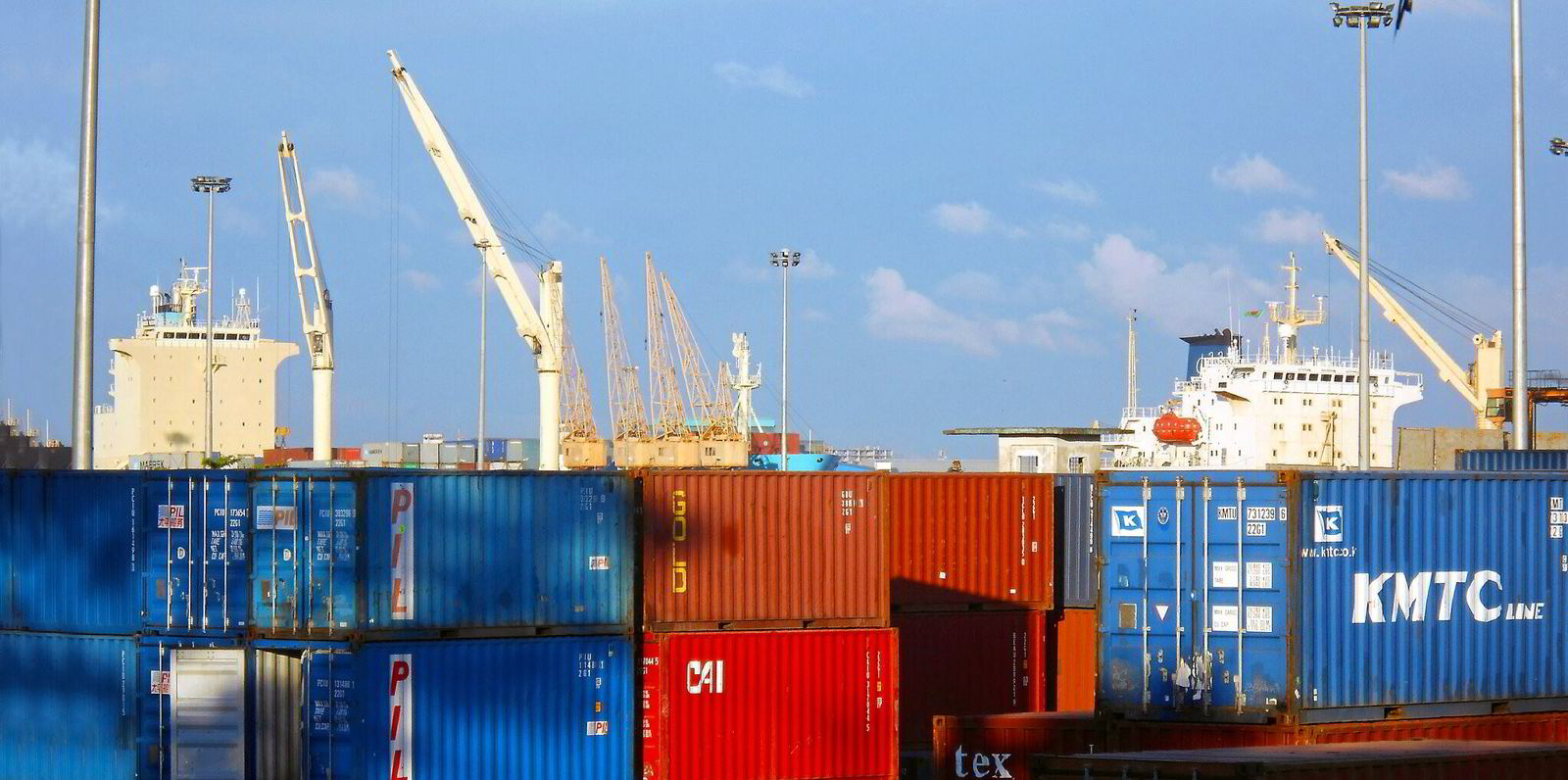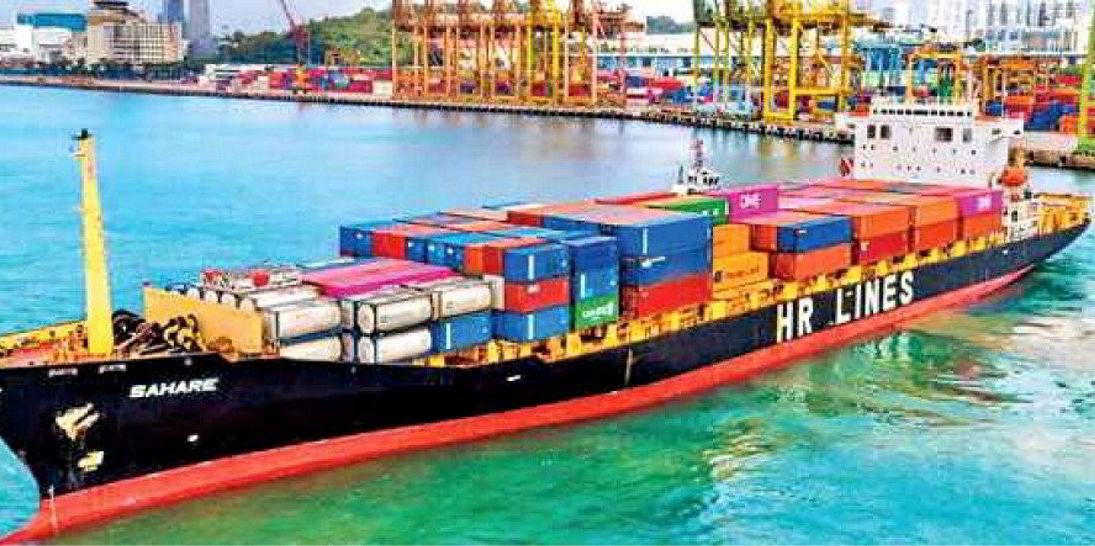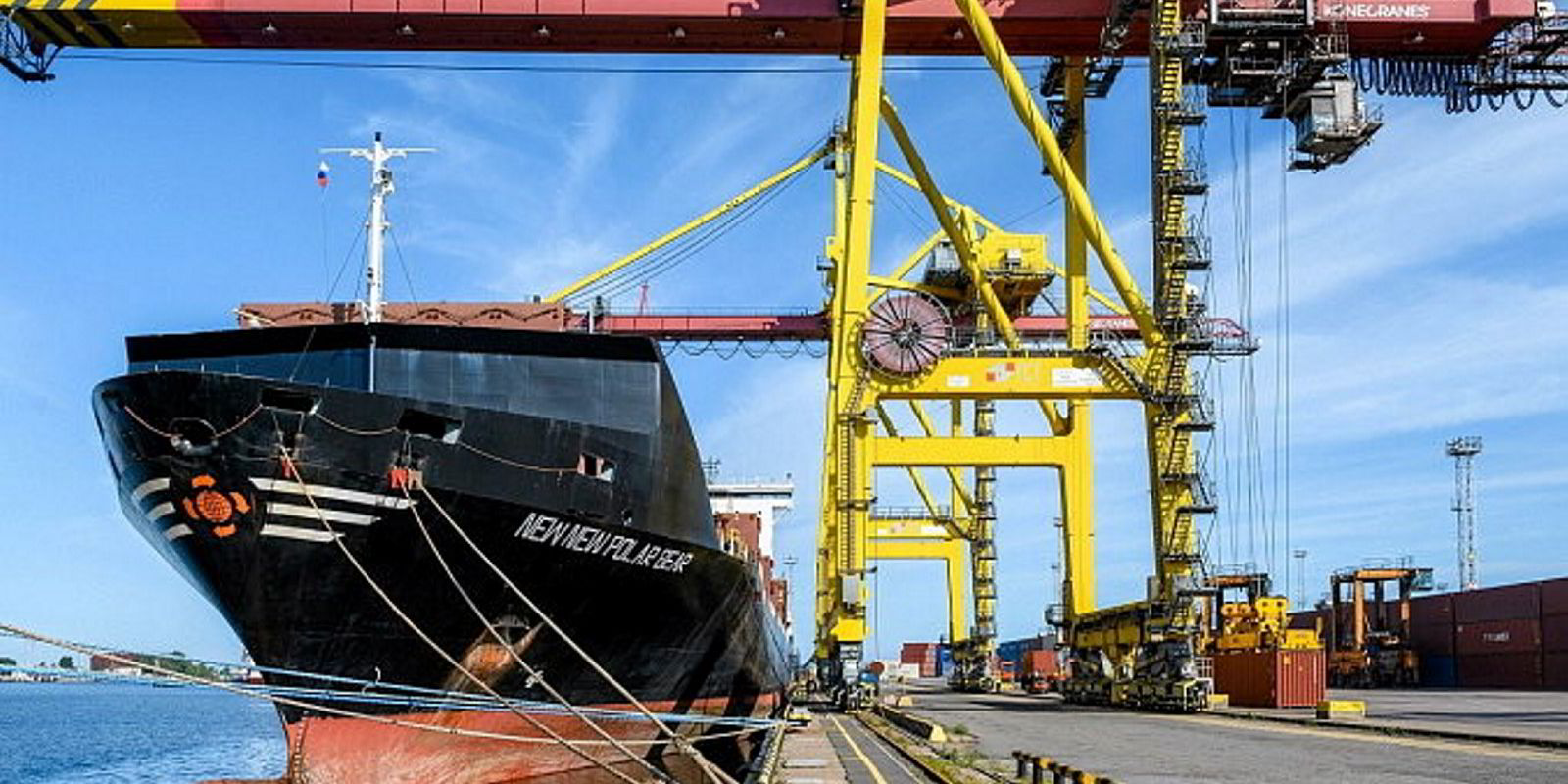Foreign container companies serving the Bangladesh container market are up in arms over what they believe is an administrative misinterpretation of the country’s Flag Protection Act, stipulating that 50% of import and export cargoes must be transported on Bangladesh-flagged ships.
Severe disruptions to vessel operations since early October are making it next to impossible to operate services to and from Bangladesh, the companies claim.
Muntasir Rubayat, a director of the Bangladesh Shipping Agents Association and head of operations of Chattogram-based shipping agency GBX Logistics, which represents several foreign liner and feeder operators, told TradeWinds that the protectionist policy is not only undermining competition in contravention of World Trade Organization rules but also threatening the competitiveness of Bangladesh’s export industries.
At issue is a recent decision that prohibits the granting of import waivers to foreign-flagged vessels until 72 hours before the berthing of Bangladeshi-flagged vessels at transshipment ports such as Singapore and Colombo, as well as restricting the issuance of export waivers until 48 hours before the berthing of Bangladeshi-flagged vessels in the Port of Chittagong, which is located in the coastal city of Chattogram.
Getting waivers in advance was not an issue until the recent establishment of local liner operators, which have eight vessels deployed on routes to Singapore and Colombo — the two main transshipment ports for Bangladesh’s containerised imports and exports.
Commodore Mohamed Maksud Alam, director general of the Department of Shipping, has downplayed allegations of delays in obtaining waivers, telling the Daily Star newspaper that most foreign ships are issued waivers, with only one or two cases to the contrary.
The liner and feeder companies tell a different story.
Singapore-based Straits Orient Lines told TradeWinds that it is one of many feeder container companies that have been negatively affected.
“The recent amendments to the Flag Protection Act have had a significant impact on cargo operations for us as SOL and X-Press Feeders Singapore, who have been jointly operating in the Colombo-Chittagong Sector since 2010,” SOL said.
“Conditional waivers are granted contingent on the satisfactory loading performance of Bangladeshi-flagged vessels, which are given priority berthing. This approach not only poses substantial challenges for the joint venture, but also creates barriers that hinder the ease of doing business in the country.”
Over the past couple of months, SOL has seen its ships tied up in the Port of Chittagong for long periods of time before permission was granted to begin cargo operations.
At the same time, delays in the commencement of cargo work have led to the ships departing with only a fraction of their intended container load as permission to extend their time in port to facilitate loading delays was denied.
Vessels of SOL’s route partner X-Press Feeders have been forced to anchor off the port for days while waiting for export waiver certificates or had previously issued export waiver certificates revoked and the cargo redirected to Bangladeshi-flagged vessels in the port.
According to Rubayat, mainline liner operators forced to divert their feeder cargoes onto Bangladeshi-flagged vessels are being forced to pay substantially higher freight rates than what the foreign feeder companies are charging.
Not only that, Rubayat said delays in vessel arrivals and departure — these have stretched up to three days in certain cases — are causing downstream problems as time-sensitive cargoes miss their transshipment windows and liner companies are forced to pay delay penalties.
Rubayat is concerned that if the current chaos continues for much longer liner and feeder services will cut Bangladesh out of their route networks.
He claimed this is already happening, with CMA CGM, which previously operated four to five feeder container ships between Colombo and Chattogram, set to pull its ships out by the end of November.
SOL, which has operated services to Bangladesh for the past 25 years, said it had no plans to cut Bangladesh calls.
“While we consistently uphold the country’s laws, ongoing restrictions on our ships concerning import and export waivers could have adverse consequences for Bangladesh’s economy,” the company said in a statement in response to questions posed by TradeWinds.
“Presently, it appears that the responsibility for compliance with this regulation is unfairly placed on vessel operators, including our company, especially along the Chittagong to Colombo route. As a service provider, we have no direct role in cargo control.
“Our tonnage deployment is determined by service commitments and contractual agreements with our customers who primarily consist of some of the industry’s largest mainline operators. We have long-term service commitments and tenders to serve our main lines customers.”
Rubayat and SOL believe that the Flag Protection Act has been badly misinterpreted by government officials who are tasked with enforcing it.
Clause 3 of the 2019 ordinance states that if Bangladeshi vessels are not operating to the cargoes’ destination, the restrictions do not apply.
With 80% of Bangladesh’s main export cargoes, mainly garments, destined for Europe and North America, they are only transshipped in Singapore and Colombo and, therefore, the restrictions and waivers requirements should not apply, Rubayat said.
A Bangladeshi court, when the matter was recently brought before it, decided not to revoke the law, but did order a review of the law and its interpretation, which is expected to be conducted over the next few months.






